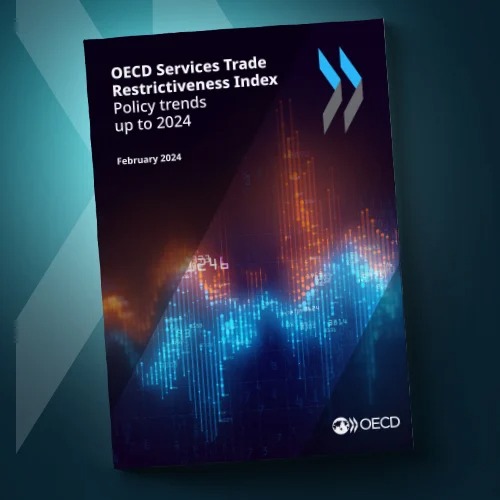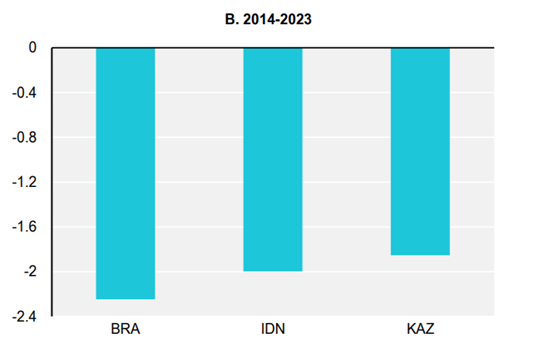
The OECD has published the Services Trade Restrictiveness Index (STRI). According to the report, Kazakhstan was among the three countries that carried out the greatest liberalization of policy reforms in the field of trade in services .
The Services Trade Restrictiveness Index (STRI) provides annually updated information on the rules affecting trade in services in 50 countries and 22 service sectors.
A new OECD report highlights key policy changes up to 2024, as well as the latest trends affecting trade in services and digital trade. It also highlights best practices and countries that are leading the way in service sector reforms.
As Deputy General Director of «QazTrade» Center for Trade and Trade» JSC, Nurlan Kulbatyrov explained, the OECD traditionally updates the OECD Services Trade Restriction Index in February.
“In simple terms, STRI is a tool for monitoring trade policy in the services sector. Kazakhstan was included in the list of countries for which the index is calculated in November 2018 as part of the Country Cooperation Program with the OECD. The index allows us to determine the level of openness or closedness of the market for trade in services, which is one of the key elements of negotiations within the framework of free trade agreements in the direction of trade in services” – Nurlan Kulbatyrov noted.
Thus, the top ten countries with the best STRI regulation indicators in 2023 included Japan, Spain, Great Britain, the Czech Republic, the Netherlands, Latvia, Denmark, Germany, Australia and Chile. Thirty of the 50 countries included in the sample have a higher average STRI than the OECD average. Thailand, Indonesia and the Russian Federation have the highest average STRI among countries.
Between 2014 and 2023, Brazil, Indonesia and Kazakhstan were the three countries that liberalized political reforms the most. During this time, Kazakhstan implemented a number of measures to simplify trade in services. Some of these liberalization measures are cross-cutting and include the removal of quotas and labor market tests for the relocation of service providers, as well as increased regulatory transparency.
Figure 1. Countries with significant reductions in the stringency of services regulations

The STRI also helps trade negotiators identify barriers to trade, benchmark domestic policies against global best practices, and acts as a source of regulatory transparency for businesses seeking to expand into foreign markets.
According to the OECD, barriers to services trade continue to be high in all countries and sectors, influenced by global economic and geopolitical challenges. The situation has become more complex with the introduction of new policies in 2023 affecting the supply of services through commercial presence and foreign investment. Several countries introduced new foreign investment screening mechanisms or revised existing ones, establishing tighter scrutiny of investment in sectors such as computer services, telecommunications, broadcasting, transport, and commercial banking. Moreover, the tightening of rules on cross-border data flows (e.g. in Viet Nam) and introduction of entry limits for foreign e-commerce platforms (e.g. in Indonesia) added to the challenges faced by services providers, especially in ICT services sectors. Other more targeted tightening policies were identified in some sectors such as transport and telecommunications services.




